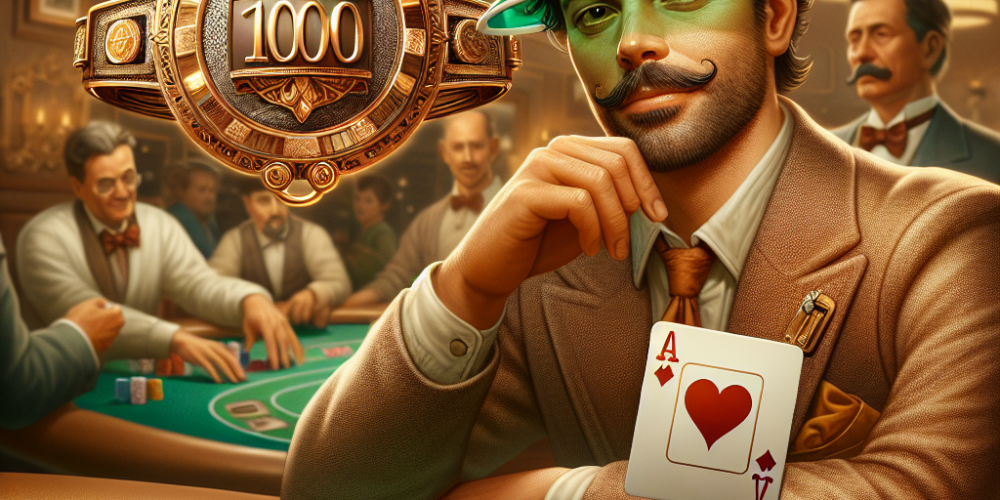In a recent interview with Card Player, Phil Hellmuth, the renowned poker player and holder of a record 17 World Series of Poker (WSOP) bracelets, expressed his belief that the number of bracelets awarded each year should be significantly reduced. Hellmuth, known for his forthright opinions, declared, “I went public, saying that there should be 100 bracelets.” This statement underscores his concern about maintaining the prestige and value of the WSOP bracelets, which currently exceed 300 in total.
Hellmuth emphasized that with the current pace of award distribution, the significance of winning a bracelet might diminish. He noted that while the owners of the WSOP might have ambitions to distribute a greater number than his proposed cap of 100, it is crucial to preserve the exclusivity that comes with holding such an accolade. To put Hellmuth’s achievements into context, his closest competitor, Phil Ivey, trails him by six bracelets, highlighting Hellmuth’s dominance in the field.
Reflecting on his illustrious career, Hellmuth recalled that he won his first WSOP bracelet in the Main Event back in 1989. Most recently, in 2023, he secured his 17th bracelet in the $10,000 Super Turbo Bounty No-Limit Hold’em event. Such achievements, he argues, risk being undervalued if the trend of increasing bracelet awards continues.
Further insights emerged during Hellmuth’s appearance on the No Gamble, No Future podcast, where he divulged details from a private discussion with representatives from GGPoker and fellow poker professional Daniel Negreanu. Allegedly, there were plans to reduce the number of annual bracelet awards. The poker legend also voiced his apprehension that the WSOP brand could suffer if the perceived value of the bracelets declines due to their proliferation.
In 2024, GGPoker, in a landmark $500 million transaction, acquired ownership of the WSOP. This change in ownership has sparked discussions about the future direction of the tournament series. “I’m not a political guy,” Hellmuth stated, “but I’m going to say, make the World Series of Poker great again.” He also revealed that Negreanu favored limiting the annual count to 150, indicating a shared concern among top players about preserving the event’s elite stature.
Hellmuth didn’t just stop at the numbers. He proposed that WSOP bracelets won through online events should be categorized separately from live event bracelets. He noted that he couldn’t name a single online bracelet holder, suggesting that the online format lacks the prestige associated with live tournaments. This proposal could redefine how online and live poker accomplishments are viewed within the industry.
The call for exclusivity is not without merit. In 2024 alone, 234 bracelets were awarded globally across all WSOP events, a statistic Hellmuth finds troubling. He argued that the essence of the World Series of Poker lies in its exclusivity, which is jeopardized by the current abundance of awards. The Las Vegas events alone offer 100 bracelets, but international live events and online tournaments considerably inflate this figure.
However, not everyone shares Hellmuth’s viewpoint. Some industry insiders argue that the expansion of the WSOP, including its online presence, democratizes the sport, offering more players the chance to achieve their dreams. More bracelets, they argue, mean more opportunities for recognition and growth in the poker community. This perspective suggests that an inclusive approach could bring new talents into the limelight and boost the overall popularity of poker.
The debate about the number of WSOP bracelets is not merely about numbers; it touches on the core values and future direction of the poker world. While Hellmuth advocates for a reduction to preserve the event’s prestige, others see the potential for growth and inclusivity. As the poker industry evolves, finding a balance between exclusivity and accessibility will be crucial in shaping the future of the WSOP and poker at large.

David Garato is a luminary in gaming journalism, renowned for peeling back the curtain on the gaming world with his witty and insightful commentary. A decade into weaving stories from the pixelated edges of indie games to the expansive universes of AAA titles, David’s work is a thrilling blend of analysis and adventure. When not writing, he’s live-streaming, sharing his gaming exploits with an engaged and growing audience. David doesn’t just write about games; he lives them, making him a trusted guide in the gaming community.
















